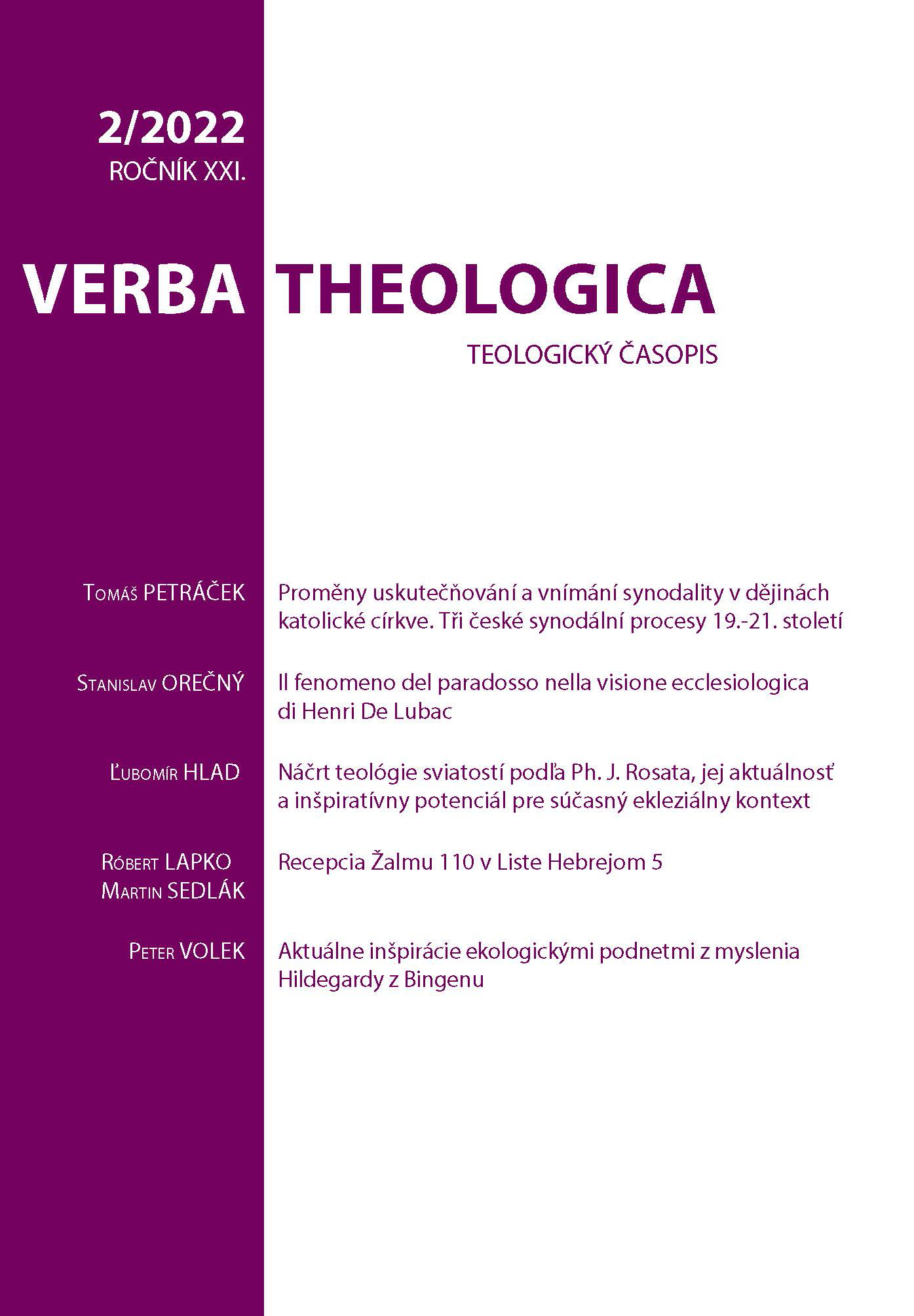Il fenomeno del paradosso nella visione ecclesiologica di Henri de Lubac
The Phenomenon of Paradox in the Ecclesiological Vision of Henri De Lubac
Author(s): Stanislav OrečnýSubject(s): Christian Theology and Religion, Philosophy, Theology and Religion
Published by: VERBUM - vydavateľstvo Katolíckej univerzity v Ružomberku
Keywords: Henri de Lubac; Paradox; Ecclesiological vision; Mystery; Sanctity
Summary/Abstract: The study analyzes the significance of paradox in the ecclesiological vision of Henri de Lubac (1896-1991) based on some of his writings. The French theologian presents paradox in an original way in order to find ways of drawing on biblical and patristic insights and to address the issues raised by the modern world for the Church. Paradox allows one to see the union of opposites while maintaining their individual distinctions. From the paradoxical point of view, de Lubac defines the Church as a mystery, keeping her human and divine elements in tension. This Church is relational in the divine, mystical, sacramental, historical, and social dimension. In it, there arise and live the paradoxes of the natural and supernatural dignity of man, of individual and collective salvation, of his temporal-eternal and visible-invisible aspect, of holiness and sin. The “paradoxical” Church is the missionary Church on the road to holiness – the Church that proclaims God’s salvation to all.
Journal: Verba Theologica
- Issue Year: XXI/2022
- Issue No: 2
- Page Range: 23-36
- Page Count: 14
- Language: Italian

